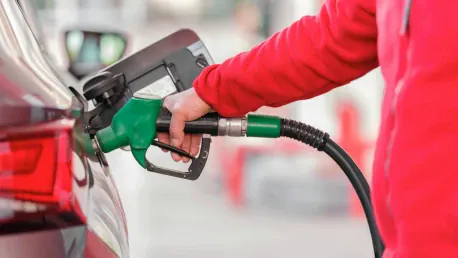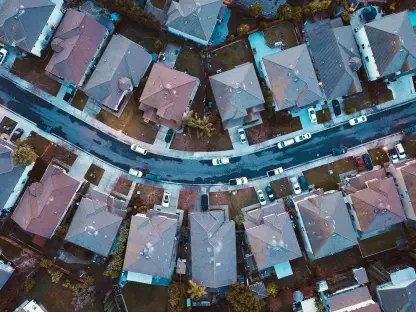The uncertainty surrounding U.S. policy is having a profound impact on biodiesel and renewable diesel production, stifling an otherwise promising sector poised for significant growth. Producers have invested heavily in expanding capacity and advancing technologies, yet they now find themselves grappling with inactivity due to inconsistent and delayed policy decisions. This regulatory uncertainty primarily involves the Environmental Protection Agency (EPA) and the U.S. Treasury, which have failed to provide clear, timely guidance crucial for forward planning in the industry. The effects of these delays are far-reaching, hampering the ability of producers to meet their potential in supplying cleaner fuel alternatives that are urgent for environmental goals.
Policy Delays from the Environmental Protection Agency
The Renewable Fuel Standard (RFS), administered by the EPA, sets annual mandatory blending levels of renewable fuels like biodiesel and renewable diesel with petroleum-based fuels. However, the EPA’s delay in establishing RFS volumes for 2026 and beyond has created significant confusion. Producers need to plan production levels and capital investments far in advance to meet these standards. The recent RFS volumes set for 2023-2025 were notably below what the industry is capable of producing and what the market demands. This underrepresentation of biomass-based diesel and other advanced biofuels in the EPA’s directive has left an enormous gap between actual capacity and recognized quotas, stymieing the industry’s growth potential.
Moreover, precise RFS volume mandates are essential for the operational stability of production plants. Without clear guidelines, producers are hesitant to increase output or invest further in their infrastructure. The unpredictability makes it difficult for stakeholders to secure financing, plan supply chains, or make long-term commitments to buyers. This halt in progress undermines years of advancement within the sector, which has seen significant technological improvements and increased production capabilities. The EPA’s delays effectively place a brake on the momentum of an industry that plays a crucial role in reducing carbon emissions and dependency on fossil fuels.
Impact of Transitioning to New Tax Incentives
Another significant challenge is the transition to the new Clean Fuel Production Credit (Section 45Z of the Internal Revenue Code), introduced by the U.S. Treasury. Designed as a technology-neutral incentive to boost renewable fuel production, the delayed and incomplete guidance on this credit has thrown the industry into disarray. Biodiesel and renewable diesel producers, who adapted to an excise tax credit system, now face an uncertain future without clear instructions for switching to the new tax framework. As a result, many companies have struggled to transition smoothly, leading to notable drops in production levels.
In January 2025, domestic biodiesel production hit its lowest monthly level in five years, while renewable diesel production fell 17% below the average monthly output in 2024. These declines starkly illustrate the extent to which policy delays and uncertainties are impacting producers, particularly smaller firms that are less able to absorb the financial shocks associated with such transitions. The industry’s disruption also affects fuel consumers who rely on biodiesel and renewable diesel for cost-effective and immediate reductions in carbon and tailpipe emissions, posing a broader environmental and economic challenge.
The Need for Policy Stability and Timely Guidance
The overarching consensus among industry stakeholders is that policy stability and timely guidance are crucial for resuming the growth trajectory of biodiesel and renewable diesel production. The Clean Fuels Alliance has been actively advocating for these needs, emphasizing the importance of ensuring that the new tax credit works favorably for all parties involved. Swift determinations of RFS volumes and clear guidelines on tax incentives can reenergize the sector, allowing it to meet rising demand for clean fuels and significantly contribute to a sustainable energy future.
Policy stability enables producers to plan their production schedules, secure necessary financing, and make informed decisions about infrastructure investments. In turn, this confidence can lead to increased production, more job creation, and further advancements in biofuel technologies. By providing consistent regulatory support, policymakers can unlock the full potential of the biodiesel and renewable diesel industries, fostering an environment where innovation and expansion are not just possible but actively encouraged. This stability will be instrumental in mitigating climate change impacts and achieving national energy independence.
Moving Forward: Solutions and Future Considerations
The lack of clarity in U.S. policy is significantly affecting biodiesel and renewable diesel production, stifling a sector on the brink of substantial growth. Producers have invested heavily in expanding their capacity and enhancing technologies, but now face inactivity due to inconsistent and delayed policy decisions. This regulatory ambiguity primarily involves the Environmental Protection Agency (EPA) and the U.S. Treasury. Both have failed to offer clear, timely guidance essential for the industry’s forward planning. The ramifications of these delays are extensive, severely limiting producers’ ability to fully realize their potential in providing cleaner fuel alternatives. These cleaner fuels are vital for achieving environmental goals, yet the current policy landscape obstructs progress, leaving the industry in a state of uncertainty and missed opportunities for meeting the urgent demands for sustainable energy. The producers’ investments and readiness are overshadowed by the need for decisive and coherent policy direction.









